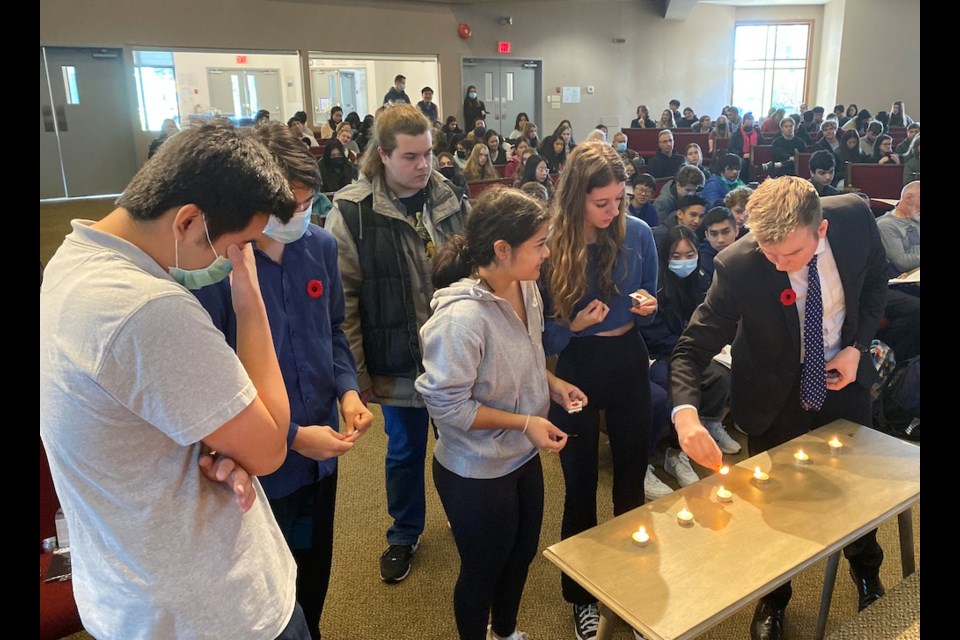Hundreds of high school students heard words of wisdom and a challenging message from a child survivor of the Nazi Holocaust at a Coquitlam symposium Wednesday (Nov. 2).
Alex Buckman, who survived the war in hiding, spoke of his own experiences to remind students about the consequences of hate speech and antisemitism.
"You just take it a day at a time and you do the best you can with what you got," said Buckman, who was left an orphan when his parents were killed at Auschwitz, a Nazi concentration camp, in 1943.
Students heard Buckman's straightforward account which comes as a controversial popular culture figure, Kanye West, has been banned from social media for spouting hate messages against Jews.
it was similar themes and a long-standing antisemitism in Europe that gave rise to conditions that condoned the killing of Jews, students were told.
Mother 'saved his life'
Buckman was just a baby when the Nazis invaded Belgium, and he was kept in hiding for the duration of the war.
On the last day he saw his parents alive, Buckman recalled that he kissed his "papa" and went say goodbye to his "maman."
But she refused to open the door, knowing she wouldn't have been able to let him go.
"She saved my life," said Buckman, now 83.
He's among a handful of Holocaust survivors who speak to young people as a reminder of the past.
Buckman is also president of the Vancouver Child Survivor Group and a Vancouver Holocaust Education Centre outreach speaker.
Dr. Sebastian Huebel, originally from Germany, who teaches about the Holocaust and researches WWII, told students that there are a lot of first-person accounts and documents online for those who want to know the history of the Holocaust.
He said German schools teach Holocaust studies in Grade 5 and in high school, and people in that country produce documentaries and hold commemorative services to acknowledge the horrific genocide of six million Jews.
'You never get used to it'
"You never get to the point where you know everything," Huebel acknowledged. "You never get used to it. It's inexplicable... you ask yourself, 'Why did this happen?'"
He warned students that Holocaust deniers are easy to find on the internet, spouting antisemitism usually to make a political point.
But the internet has also made it easier for students and scholars to study the Holocaust through first-person accounts.
"It [the information] is out there; you have to look the other way to deny it," Huebel asid.
Buckman said he was 50 years old before he could speak about the experience of being in hiding, living in an orphanage and later, learning his parents were killed.
He grew up with his aunt and uncle, who were Holocaust survivors, and left home as a teenager, noting that the trauma lingered among all the family members.
“We did the best we could as a family. At times it was not easy.”
The Coquitlam sympsium marked 15 years since a Dr. Charles Best Secondary School teacher introduced the idea of bringing Holocaust survivors to speak to high school students.
Raising 'awareness'
Veteran teacher Ken Ipe, who teaches English, was inspired by a similar Holocaust education event at UBC 16 years ago.
Ipe said teachers were asked about having a local district event and he “immediately jumped on it,” bringing it to his Best colleagues.
“Worlds change but not the message: The purpose of the Holocaust Symposium is to promote human rights, social justice and genocide awareness,” Ipe told the Tri-City News.
“It is to learn the moral lessons of Holocaust of compassion, empathy and love compared to indifference, cruelty and hate,” Ipe said.





